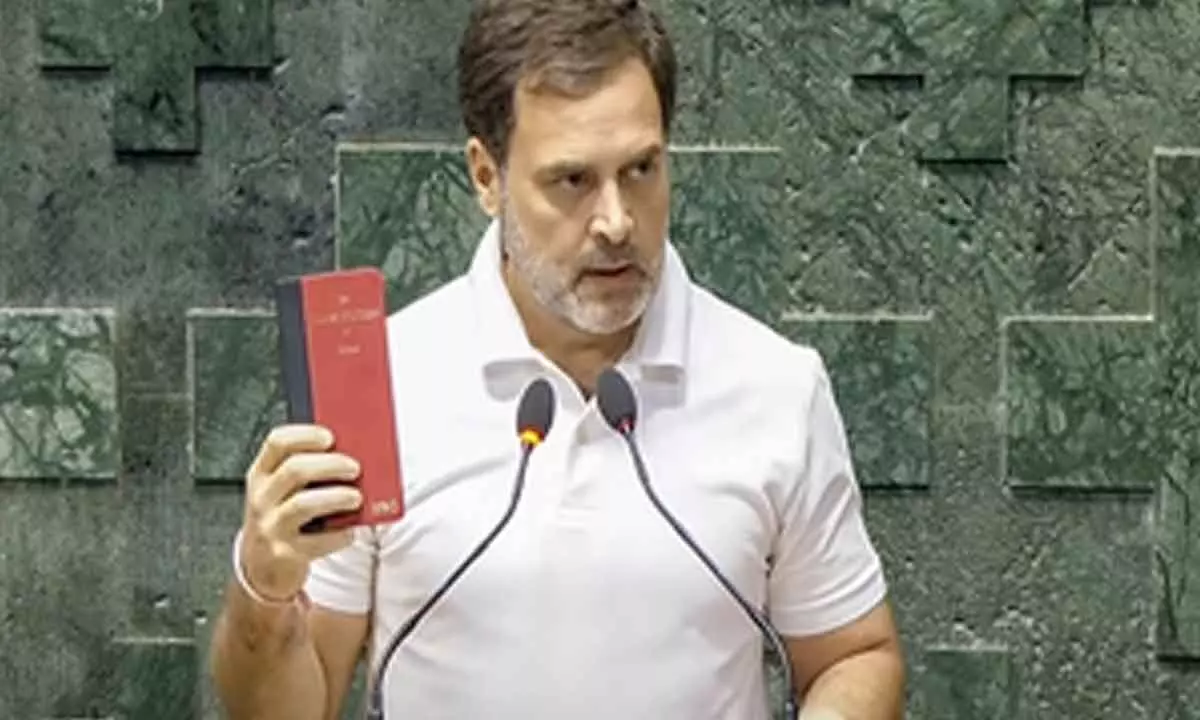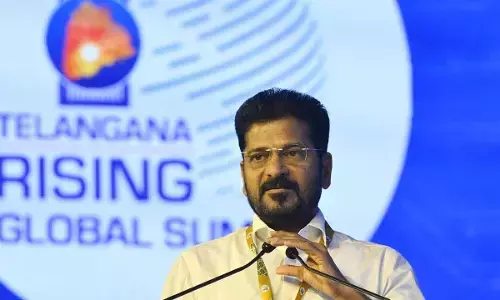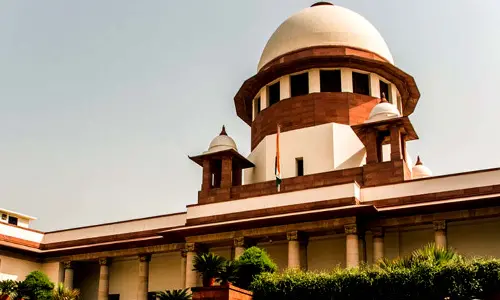Preface of 'Constitution' copy that Rahul flashes faults Nehru's policy, Emergency
Share :

During his election campaign and following the election results, Congress leader Rahul Gandhi has repeatedly claimed without evidence that the NDA government led by Prime Minister Narendra Modi is endangering the Constitution and aiming to abolish reservations for marginalised sections of society.
As part of his political rhetoric, he has been prominently displaying a small pocket-sized Constitution bound in red and black leather, positioning himself as the protector of the Dalits, Scheduled Caste, Tribals (ST), and OBC communities, advocating for the preservation of their constitutionally guaranteed reservations.
However, Congress MP and Leader of Opposition in Lok Sabha, Rahul Gandhi, appears to be unaware of the contents of the preface of this compact book. Ironically, Supreme Court advocate Gopal Sankaranarayanan, the creator of this pocket-sized Constitution book, has not viewed Pt. Jawaharlal Nehru's policies favourably.
More critically, the legal expert refers to Indira Gandhi's Emergency period to emphasise the significance of the Constitution. Sankaranarayanan has articulated his views in the preface of the book.
In the preface, he states: "Our Constitution was crafted by the finest, most emancipated minds of the time, and thankfully, not directed by the confused Nehruvian social policy that guided successive governments."
"Were it not for the strength of this document, Indira Gandhi would not have been compelled to end the darkest episode in independent India by ending the Emergency, and the nation's poorest would not have been empowered by the Right to Information Act."
Interestingly, Sankaranarayanan has also expressed opposition to OBC reservations at some point and advocated for a thorough overhaul of current reservation policies.
K.K. Venugopal, Senior Advocate of the Supreme Court and former Attorney General of India, who has penned the foreword for this leather-bound pocket constitution, reminisces about the emergency period "which hit the nation like the Tsunami and brought about the realisation that the Constitution could be subverted".
In the foreword section of the book, his views convey a clear message, as he writes: "Would the founding fathers have ever imagined the tribulations, the controversies, the confrontations that would arise when the provisions are implemented? At the same time, they would, undoubtedly, have conceived of the vast benefits that the disadvantaged sections of society would derive through the implementation of the provisions of the Constitution of India. By distributing powers between the Centre and the States and through separation of powers between the three organs of State, the founding fathers would have been satisfied that the nation would march forward in tranquility and peace without any conflicts between the State and the Centre or between the different organs of State. Could they have been more mistaken?"
In an unmistakable reference to the period of emergency phase, he further underscores: "From the earliest years itself, the legislative wing and the executive wing of the State on the one hand, confronted the judicial wing on the other, with the accusation that they had vastly encroached upon the powers not given to them but given to the executive."
He writes: "The then Law Minister on October 28, 1976, issued a strident warning to the judges of the Supreme Court, and I quote: 'An atmosphere of confrontation was sought to be created by those whose duty it was to see that they did not encroach upon the field which did not legitimately belong to them. Nothing should be left undone now to ensure that such a situation did (sic, does) not recur. If even after the amendment, confrontation continues, then I think it will be a bad day for the judiciary'. And again: "We are trying to save them from the temptation to intrude into powers which do not belong to them. What we are doing today is not to save the people from the judges but really enabling the judges to save them from themselves."
"This was said during the Emergency, which hit the nation like the Tsunami and brought about the realisation that the Constitution could be subverted. It is true that the Supreme Court did not rise to the occasion, but in the aftermath of the lifting of the emergency, this one wing of the State, the Judiciary, spearheaded by the Supreme Court of India, established its primacy, by ensuring that the vast rights bestowed on the people by the Constitution, including human rights, freedom of speech and the right to life and liberty were all rendered sacrosanct."
















